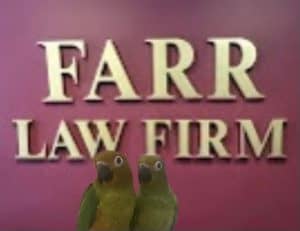 Dear Kiwi and Mango,
Dear Kiwi and Mango,
I am in the process of organizing my paperwork. I was thinking that I should put anything important that my children would need in one place, to make things easier if something should happen to me. Do you have any suggestions for how to simplify things for my children?
Thanks for your help!
Macon Iteasier
—
Dear Macon,
It is a smart idea to organize your papers, passwords, PIN numbers, and other important things for a smooth transfer of your estate to your heirs. This will make things less hectic for them during what will surely be a stressful time. Here are some things we suggest:
- Keep Passwords in One Safe Place: When you pass away, your heirs will need access to your passwords and pin numbers. This includes the information in our cell phones, computers, online accounts, tablets, and other technology. Don’t forget information to access pensions, bank accounts, and investment statements. This includes both usernames and passwords. For ratings of some free password manager options, Forbes recently published an article titled “The 5 Best Free Password Managers of 2024.”
- Make a List of All Assets, Accounts, and Contacts: You can use a Word document or a spreadsheet. Be sure to include:
- Investment accounts, including checking and savings accounts, CDs, 401(k)s and other retirement accounts, brokerage accounts, and mutual funds.
- Places where you pay bills, including credit cards, utilities, and health insurance.
- Other assets, including real estate, motor vehicles, life insurance, long-term care insurance, and any other assets you own or partially own.
- Put Everything in One Place: Keep your paperwork in a safe or waterproof and fireproof container at home, and make sure your heirs are aware of it. Here are some typical items to include, if applicable to you:
- List of all assets and accounts that you own or partially own;
- Copies of deeds to all real estate you own or partially own;
- List of passwords or where passwords are located;
- Estate Planning documents;
- Prepaid funeral expenses, including burial plot deeds, coffin purchases, funeral services, and cremation plans;
- Life insurance policies;
- Long-term care insurance policies;
- Auto insurance policies;
- Homeowners insurance policies;
- Title insurance policies on all real estate;
- Titles to any physical assets, including motor vehicles;
- Birth certificate;
- Any currently valid marriage certificate;
- Any divorce decree;
- Any prenuptial agreement;
- Any adoption papers;
- Any work permit and citizenship papers;
- Social Security card;
- Copies of your driver’s license and medical insurance card;
- Most recent tax return.
- Convert Paper Treasury Bonds to Electronic TreasuryDirect Holdings: Maybe you made some bond investments and are looking forward to leaving them to your children. Unfortunately, many banks have stopped cashing paper bonds. Plus, if they do accept them, it’s a lot of work to fill out all of the information on the back of each bond. With an online TreasuryDirect account, you can input each bond’s serial number, and then send in the paper bonds with a form to the Treasury. Here is a helpful article on converting EE or I paper bonds to electronic bonds.
- Put Your Health Care Wishes in Writing: At the Farr Law Firm, in your 4 Needs Advance Medical Directive®, you can appoint an agent and give that person the power to consent to medical and health care decisions on your behalf. This person can decide (based on your expressed wishes, if any) whether to withhold or withdraw a specific medical treatment or course of treatment when you are incapable of making or communicating an informed decision yourself. Our 4 Needs Advance Medical Directive also contains a proprietary Long-Term Care Directive® that allows you to address dozens of important issues that arise if and when long-term care is needed and you’re unable to communicate your wishes. So, be sure to make an appointment to include these wishes in your legal documents.
- Put Your Burial Wishes in Writing: You should also make your burial wishes known ahead of time. The After-Death Directive portion of our 4 Needs Advance Medical Directive® enables you to set forth your preferences with regard to burial or cremation, memorial service arrangements, disposition of remains, organ donation, and many other issues that arise after death.
If you haven’t done Estate Planning or Long-Term Care Planning, be sure to make an appointment at the Farr Law Firm to do so! Good luck getting organized and finding a good place to keep everything!
Kiwi and Mango
Print This Page











